A Friendly Guide for Curious Sippers
A Tale of Two Beloved Beverages
If you’ve ever stood in a bustling café debating between a matcha latte and your usual morning coffee, you’re not alone. Around the world, coffee and matcha each inspire deep devotion and curiosity. But which one is actually healthier?
Both drinks have rich histories: coffee with its bold aroma and invigorating brew; matcha (抹茶, matcha) with its vibrant green hue and centuries-old role in Japanese tea ceremonies. And now, both are staples of modern wellness routines. In this article, we’ll explore how matcha compares to coffee in terms of caffeine effects, health benefits, nutrition, and more so you can sip with confidence.
Quick Comparison: Matcha vs. Coffee
| Feature | Matcha | Coffee |
|---|---|---|
| Caffeine per serving | 50–70 mg (per 1–2g serving) | ~95 mg (per 8oz cup) |
| Key compounds | Catechins (EGCG), L-theanine, fiber | Polyphenols, phenolic acids |
| Antioxidant content | Very high (whole leaf consumed) | High (extracted from beans) |
| Energy effect | Calm, sustained, focused | Fast, strong, may cause jitters/crash |
| Unique nutrients | L-theanine, fiber, vitamins A/C/E/K | Some micronutrients, no L-theanine |
| Potential downsides | Can be bitter, may contain lead (low risk), price | Jitters, anxiety, sleep disruption, staining teeth |
| Preparation | Whisked powder, lattes, culinary uses | Brewed, espresso, cold brew, lattes |
| Cultural ritual | Meditative, personal | Social, energizing |

Caffeine Content and Effects: A Different Kind of Buzz
Both matcha and coffee provide a much-loved energy boost, but they work differently in your body.
A standard cup of coffee contains about 95 mg of caffeine, depending on the bean and brew. This caffeine is absorbed quickly, often leading to an adrenaline spike that familiar jolt that can boost alertness but sometimes brings anxiety, jitters, or a mid-afternoon crash.
Matcha, in contrast, typically contains 25–35 mg of caffeine per gram, with a serving (1–2 grams) yielding 50–70 mg of caffeine. The key difference? Matcha also contains L-theanine (an amino acid), which slows caffeine absorption and promotes a calm, sustained energy. Many drinkers find this enhances focus for several hours without the common caffeine withdrawal symptoms or sleep quality issues associated with coffee.
Key takeaway: If you seek an alert-yet-relaxed energy boost with fewer jitters, matcha may be the better choice.
Daily Consumption Guidelines: How Much is Just Right?
When it comes to daily intake, moderation is key for both beverages:
- Coffee: 2–3 cups per day (up to ~400 mg caffeine) is generally considered safe for most adults, but sleep impact and caffeine tolerance vary.
- Matcha: 1–2 servings per day (2–4 grams of powder) is a typical recommendation, providing ample antioxidants and L-theanine with gentler effects on glucose and insulin levels.
For younger drinkers or those sensitive to caffeine, matcha’s lower caffeine content and whole leaf consumption (providing fiber and nutrients) make it a gentler option. And because matcha powder measurement is flexible, it’s easy to adjust your serving size to suit your needs.
Scientific Evidence: What Do We Really Know?
Both matcha and coffee have been studied for potential health benefits, but the strength and depth of the research differ:
- Coffee: Supported by decades of large, long-term studies. Regular coffee consumption is linked to reduced risks of cardiovascular disease, certain cancers, Parkinson’s disease, and type 2 diabetes.
- Matcha: Shows promising benefits, but most research is either new, short-term, or extrapolated from green tea studies. Emerging evidence points to antioxidant, anti-inflammatory, and cognitive support effects, but large-scale studies remain limited.
Bottom line: Coffee has more robust evidence for long-term health benefits, but matcha’s unique nutrients and gentler effects make it a compelling choice, especially for those seeking alternatives.

Health Benefits Comparison: A Look at Wellness Potential
- Matcha: Cardiovascular health, gut health, oral hygiene, reduced inflammation, enhanced metabolism and energy boost, calm focus due to L-theanine.
- Coffee: Antioxidant defenses, cardiovascular health, lower mortality, reduced risk of several chronic diseases.
What sets matcha apart: Whole leaf consumption, you ingest the full range of nutrients, fiber, and amino acids (including L-theanine), which may help counterbalance caffeine effects and promote a more stable metabolic response.
Potential Downsides: What to Watch Out For
- Coffee: Jitters, anxiety, sleep disruption, staining teeth, digestive discomfort, withdrawal symptoms.
- Matcha: Can be bitter if low quality, possible trace heavy metals (low risk with reputable brands), higher price, sugary café versions may negate health benefits.
Nutritional Profile: What’s in Your Cup?
- Matcha: Catechins and L-theanine, vitamins A/C/E/K, trace minerals, fiber content (over 50% of matcha powder is fiber), minimal sugar content.
- Coffee: Phenolic acids, some micronutrients, no fiber or L-theanine, often consumed with added sugar or MCT oil.
Preparation Methods and Rituals: More Than Just a Drink
- Matcha: Whisked in a chawan (matcha bowl) with chasen (bamboo whisk), matcha latte, creative culinary recipes.
- Coffee: Brewed, espresso, cold brew, social drink often shared in groups or as a quick pick-me-up.
Taste and Sensory Experience: Subtle vs. Bold
- Matcha: Umami-rich flavor, mild grassy taste, creaminess with milk, lower bitterness, enhanced when enjoyed with Japanese handcrafted bowls and wagashi.
- Coffee: Bold, bitter, nutty or chocolatey notes, strong aftertaste and aroma, often sweetened or flavored.
Weight Management Considerations: Can These Drinks Support Your Goals?
- Matcha: May support fat oxidation, gut microbiome, energy for moderate exercise, and reduced cravings (thanks to L-theanine and catechins).
- Coffee: Caffeine aids fat breakdown and energy expenditure, though appetite and stress hormone effects vary by person.
Tip: For those exploring supplementing with matcha for weight loss, research suggests 1–2 servings per day as part of a balanced lifestyle.
Myths & Misconceptions: Setting the Record Straight
- Myth: Matcha lattes are always healthy.
- Fact: Many contain added sugars, check ingredients or make your own.
- Myth: Coffee dehydrates you.
- Fact: Moderate coffee does not cause dehydration in healthy adults.
- Myth: Matcha is always better than coffee.
- Fact: Both offer unique benefits; the choice depends on your needs.
Practical Tips: Choosing and Preparing the Healthiest Cup
- For matcha, select high-quality, ceremonial-grade powder for drinking straight; culinary grade for recipes.
- Prepare matcha with minimal sugar to maximize benefits.
- For coffee, opt for filtered or black coffee; limit sugars and creamers.
- Try both without milk first, dairy can reduce absorption of some antioxidants.
- Store both matcha and coffee properly to maintain freshness.
Final Verdict: Is Matcha Healthier Than Coffee?
Both matcha and coffee have their place in a modern wellness lifestyle. Coffee is bold, familiar, and backed by strong evidence. Matcha is nuanced, steeped in tradition, offering calm, sustained energy with unique nutrients.
The answer depends on what you value:
- Robust research and a bold, social beverage? Coffee.
- Calm energy, antioxidants, mindful ritual, and fewer jitters? Matcha.
Ultimately, both can be enjoyed as part of a healthy lifestyle. Alternate or combine them, choosing high-quality ingredients and preparing them mindfully.
Conclusion: Which Cup is Right for You?
If you seek a beverage that offers:
- A calm energy boost
- Rich antioxidants
- A soothing ritual
- Culinary versatility
- Fewer jitters and better sleep quality
…matcha may be the perfect choice for you.
Curious to explore more? Browse our collection of artisan matcha bowls, cups, and complete matcha sets perfect for creating your own moment of calm and cultural appreciation, right at home.
Key Takeaway: Both matcha and coffee offer unique advantages. The healthiest choice is the one that fits your body, your taste, and your lifestyle.


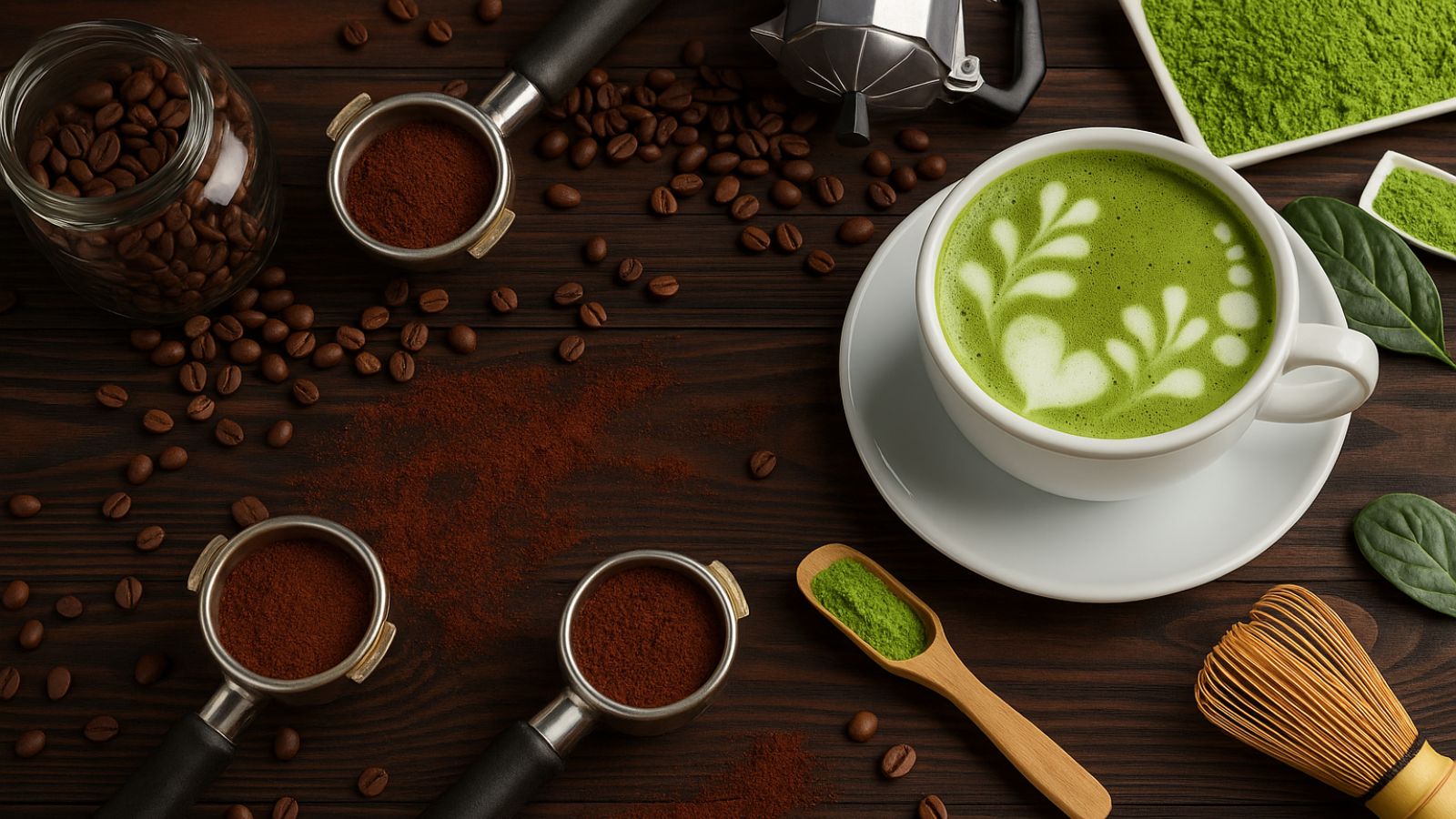

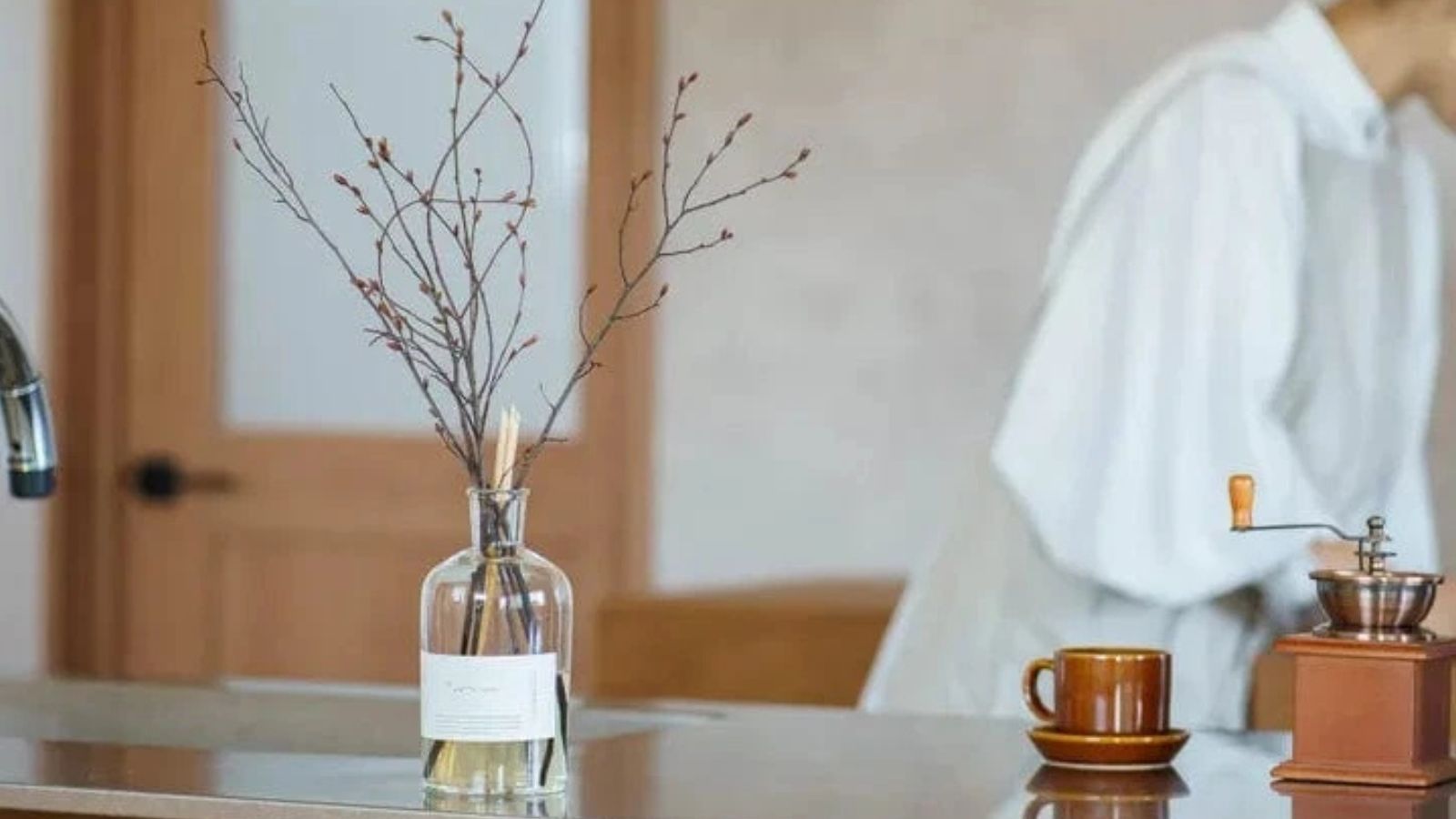

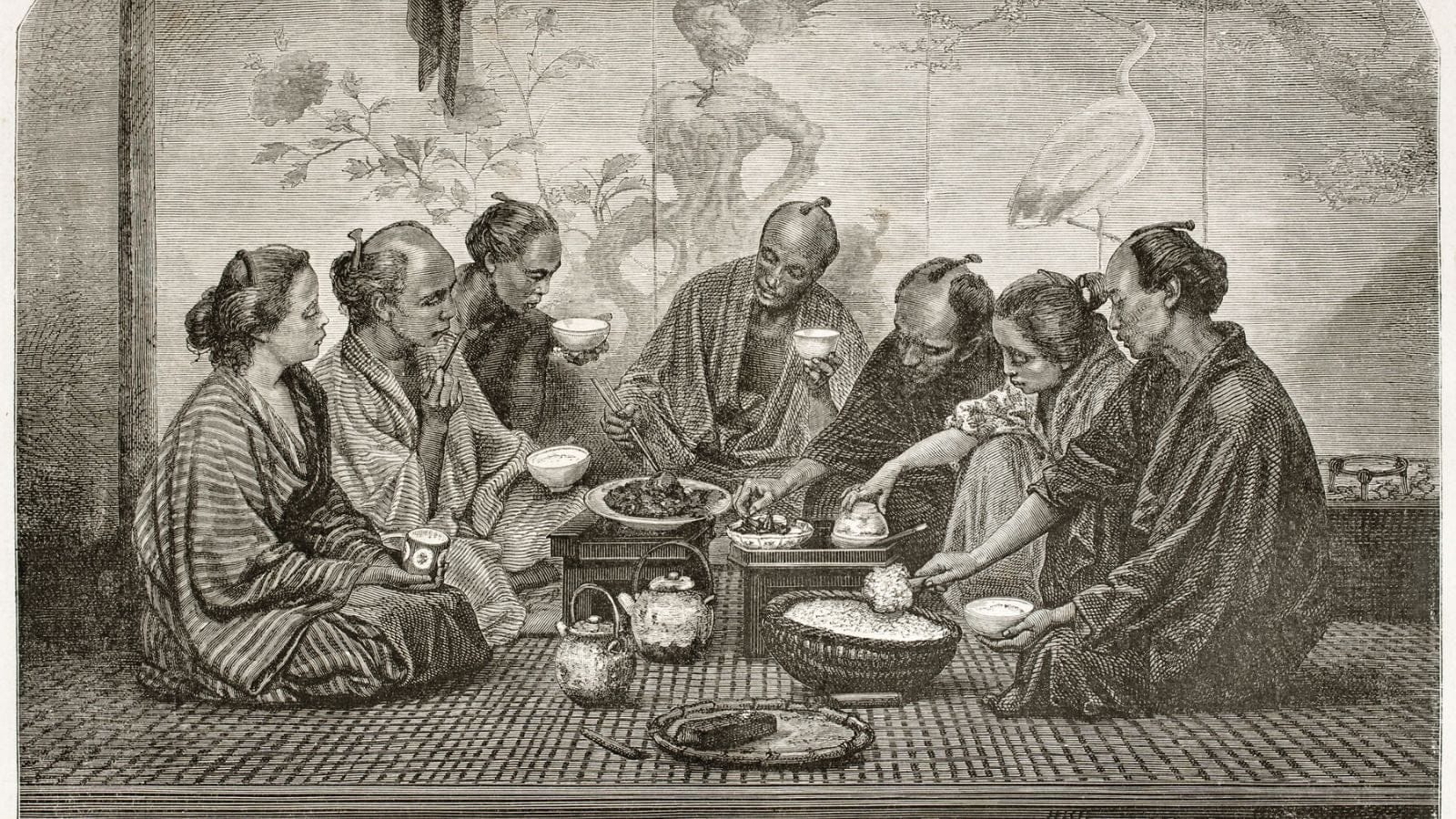
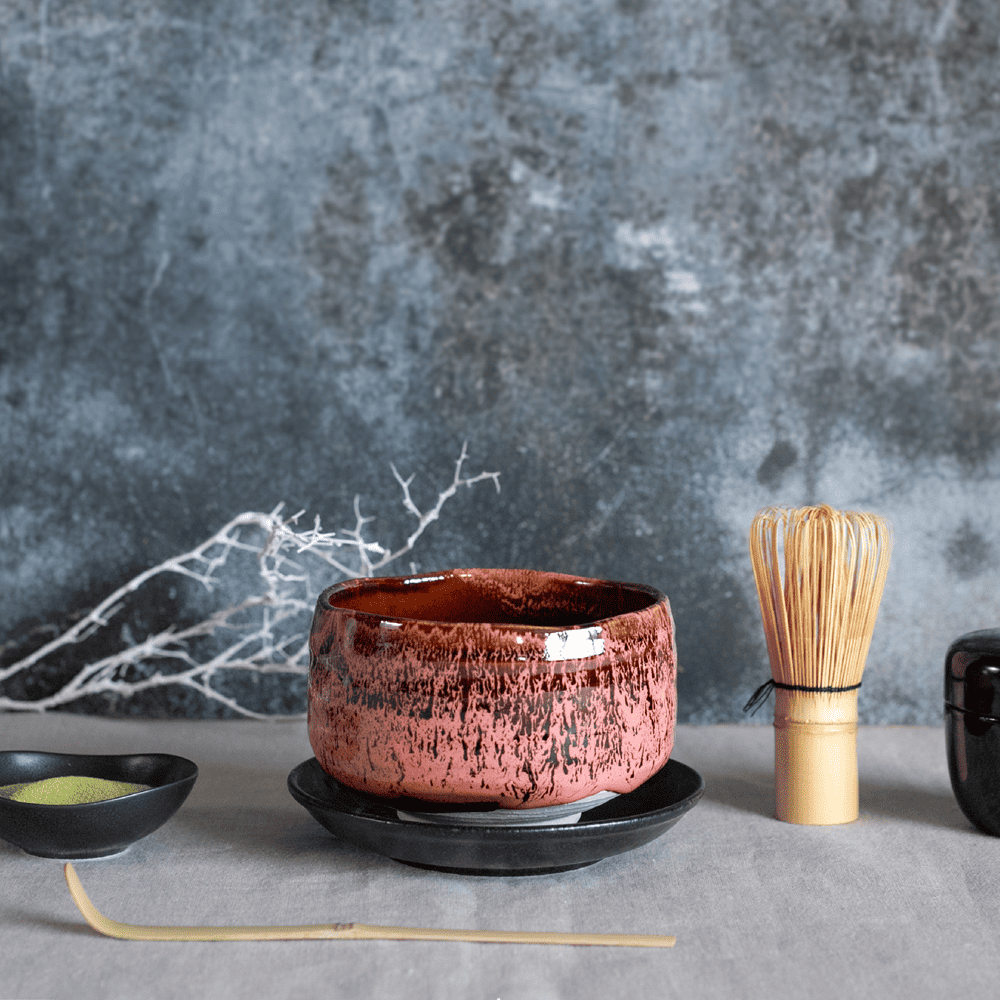
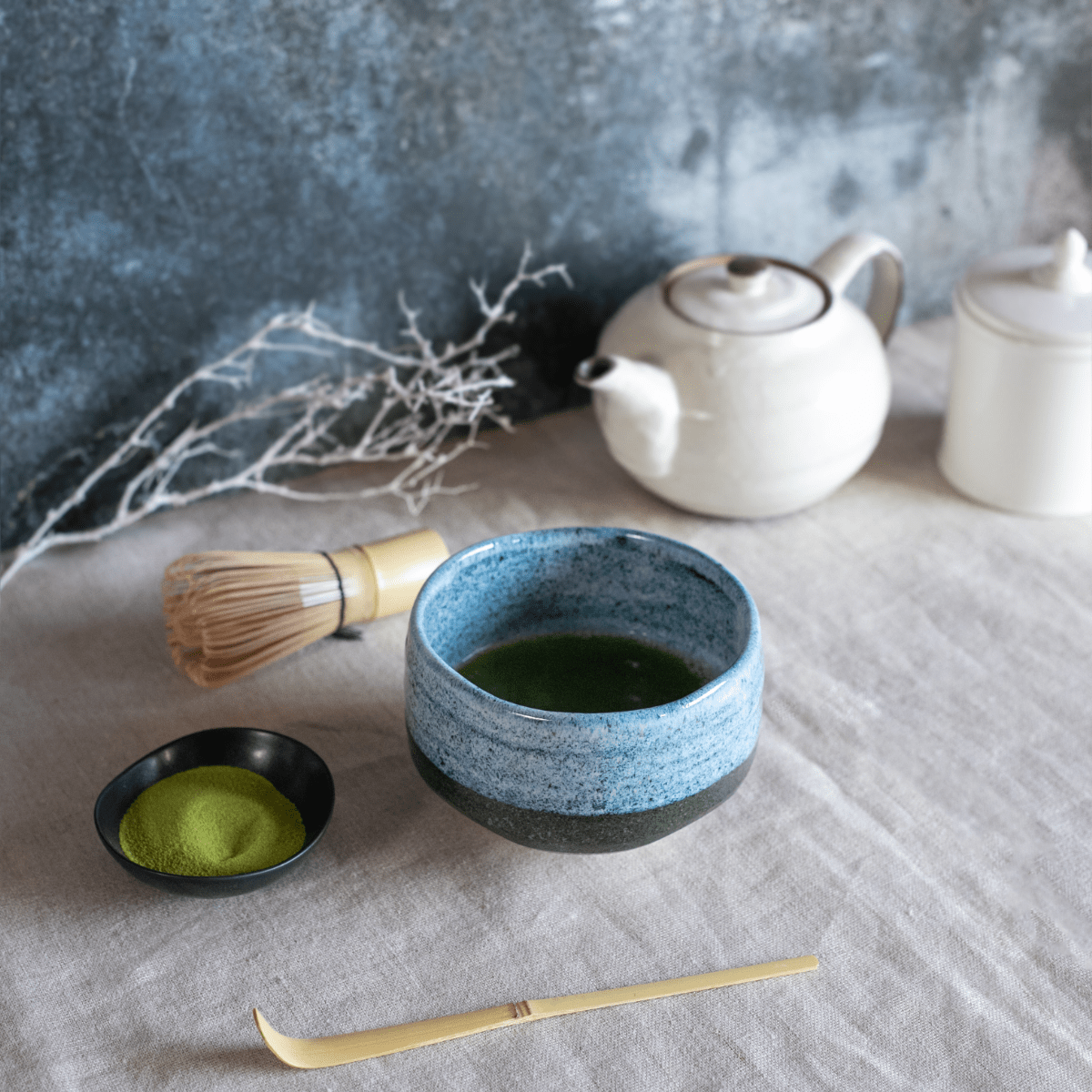
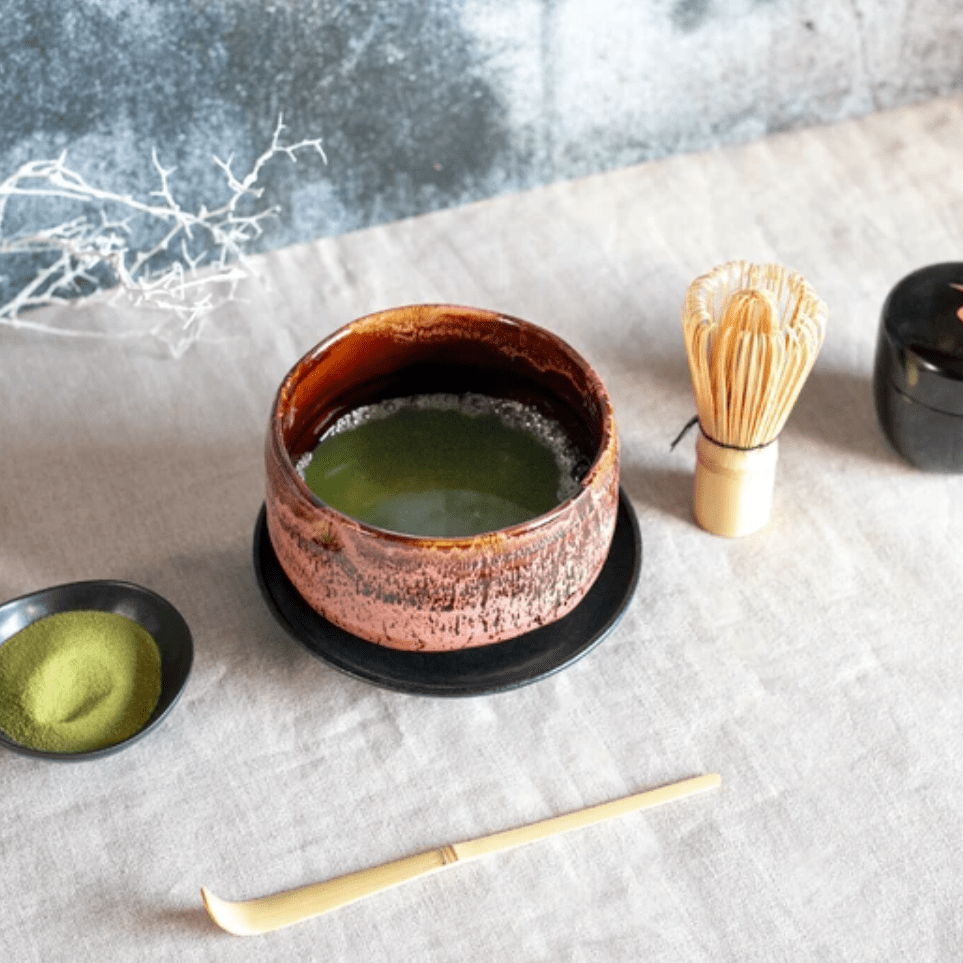
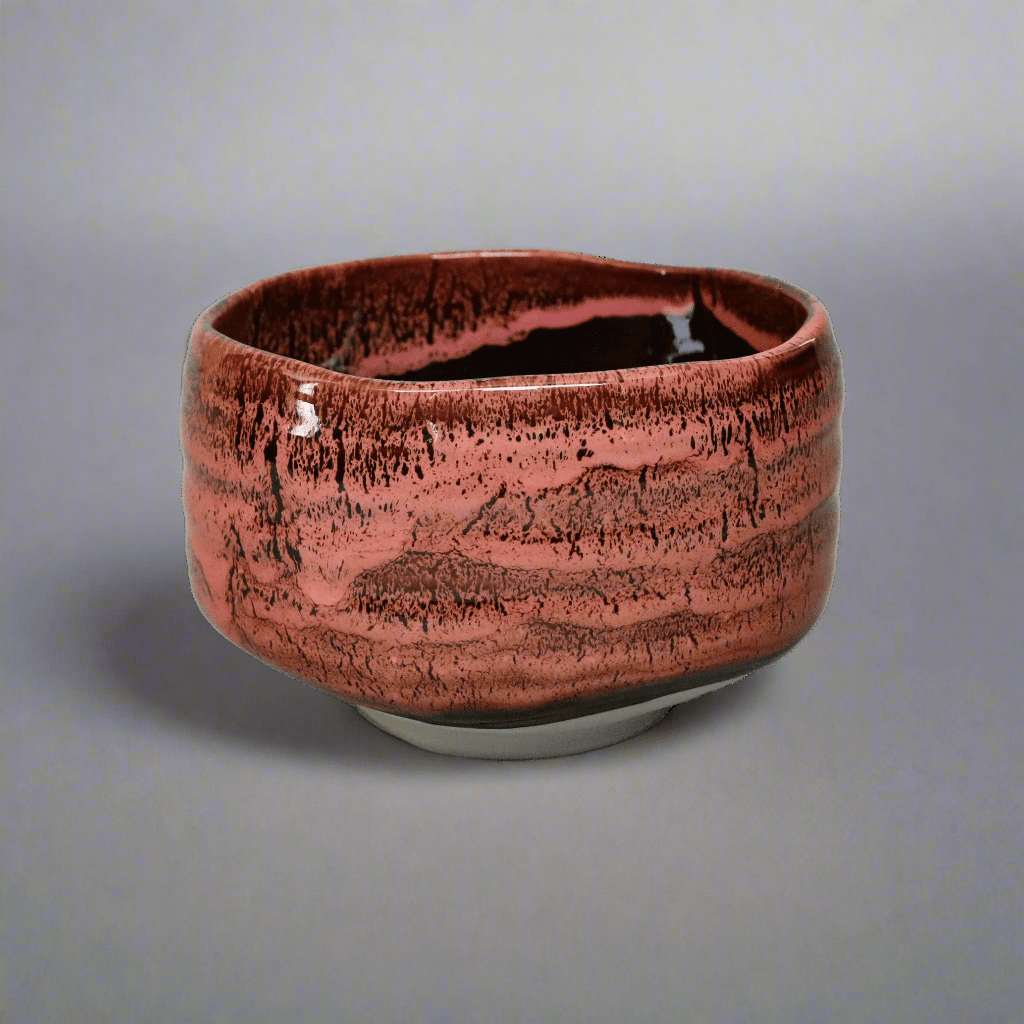
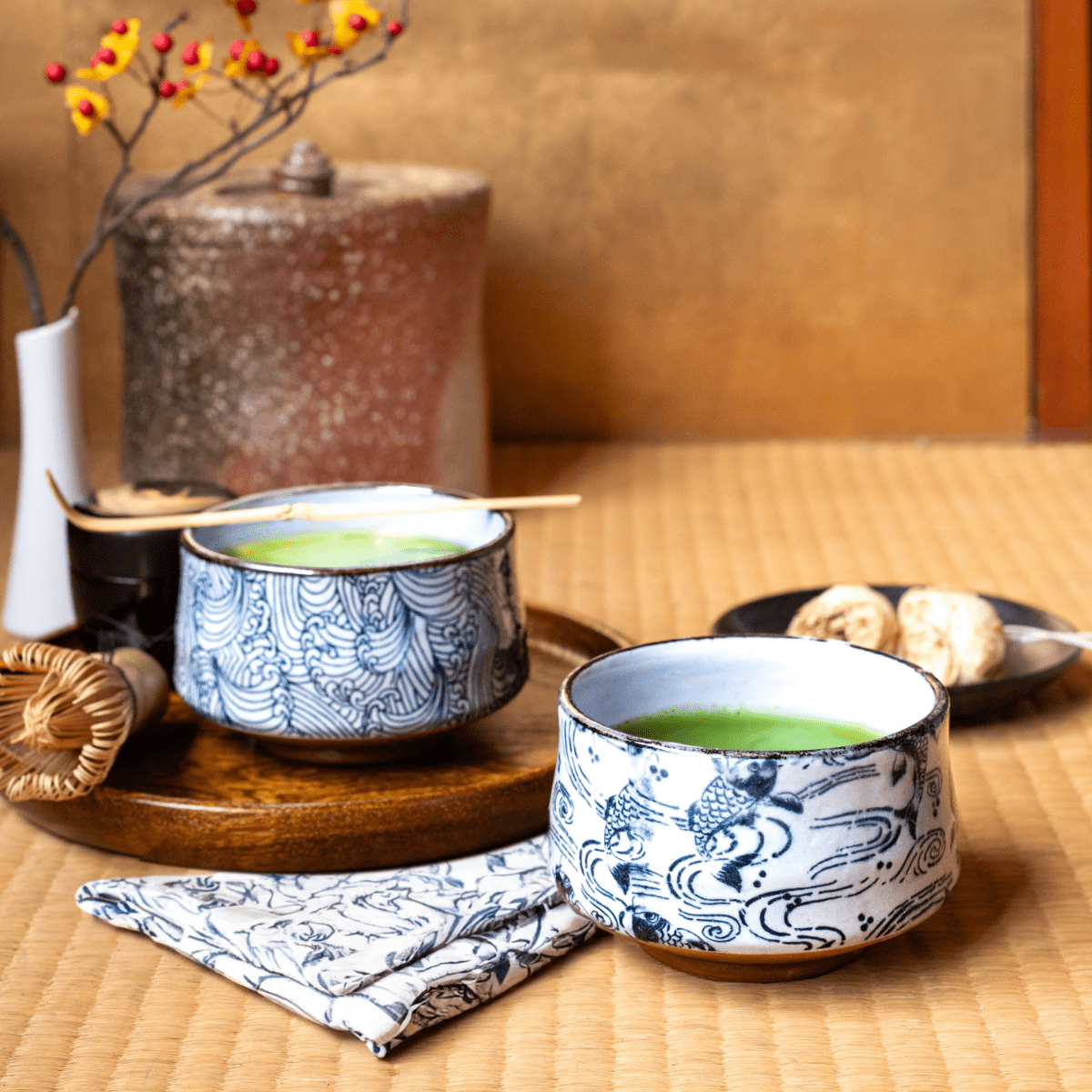
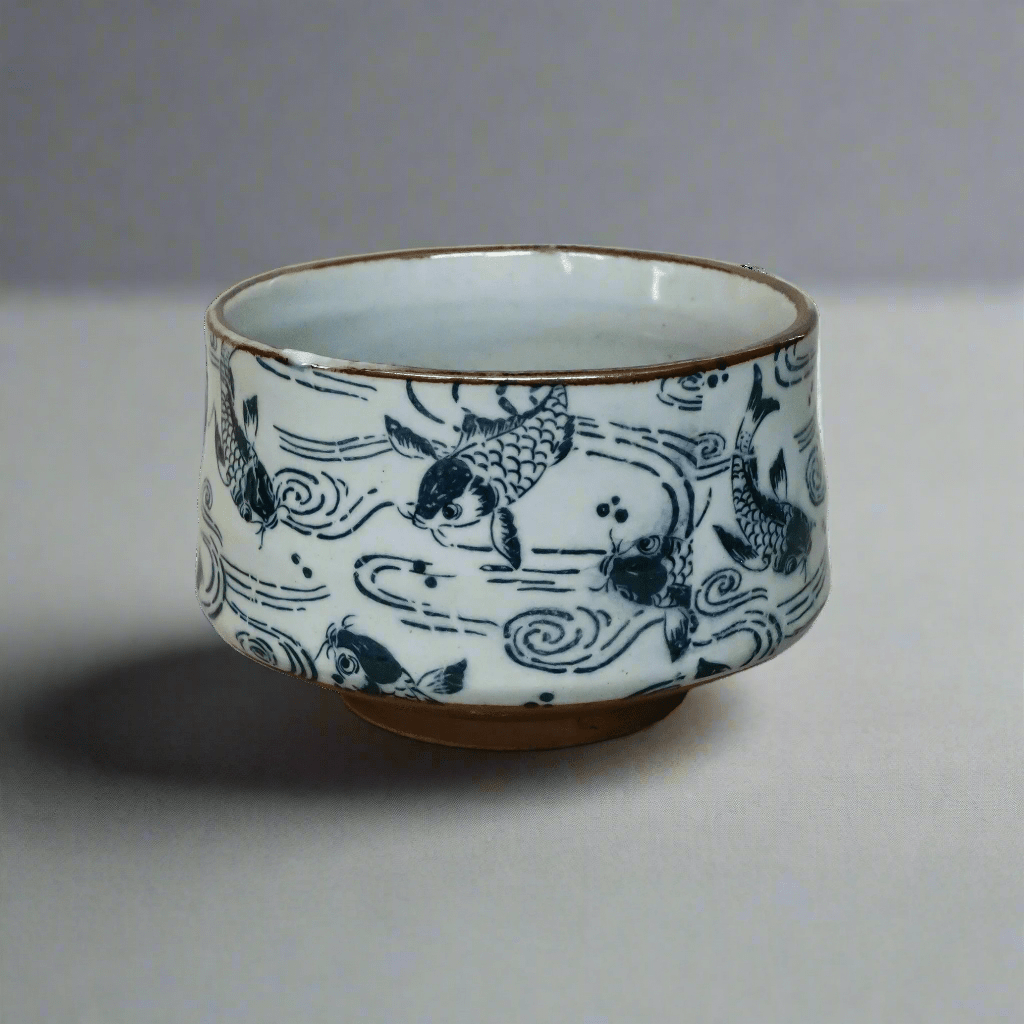
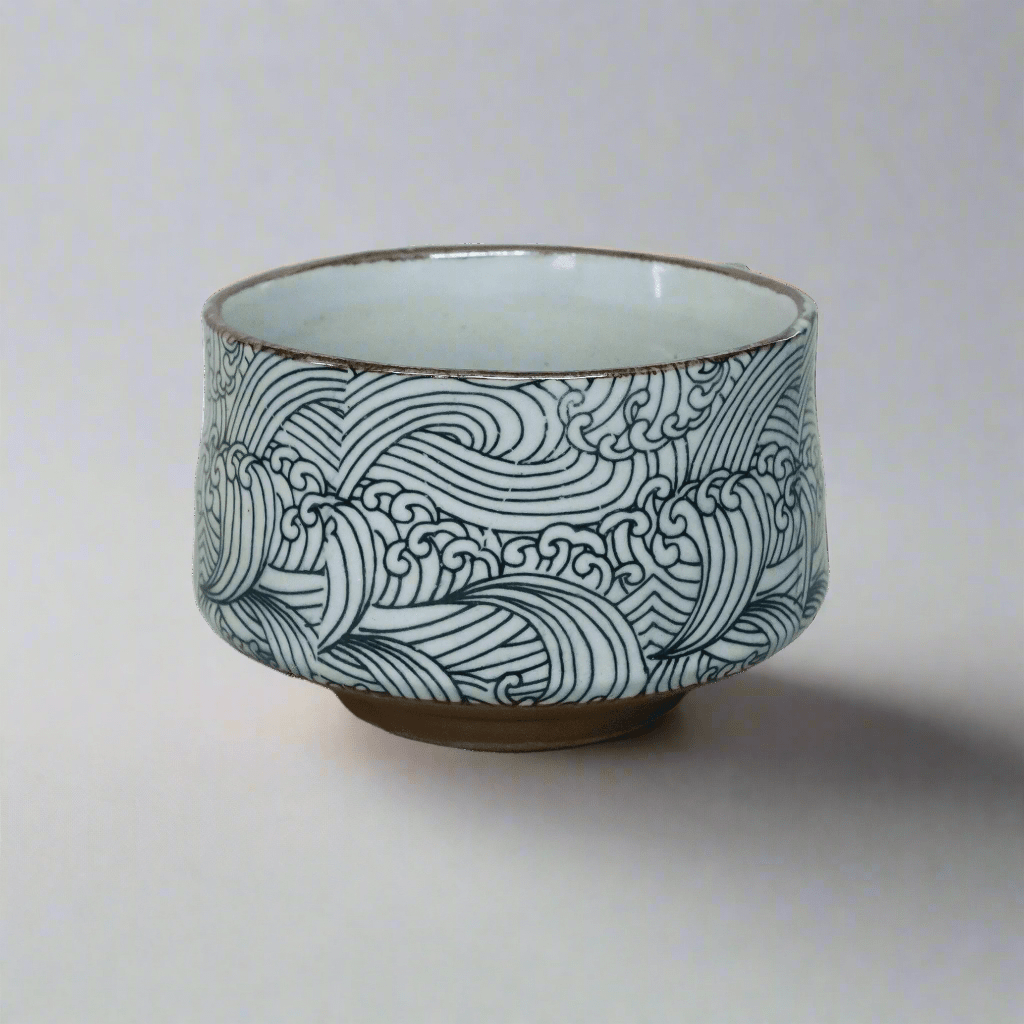
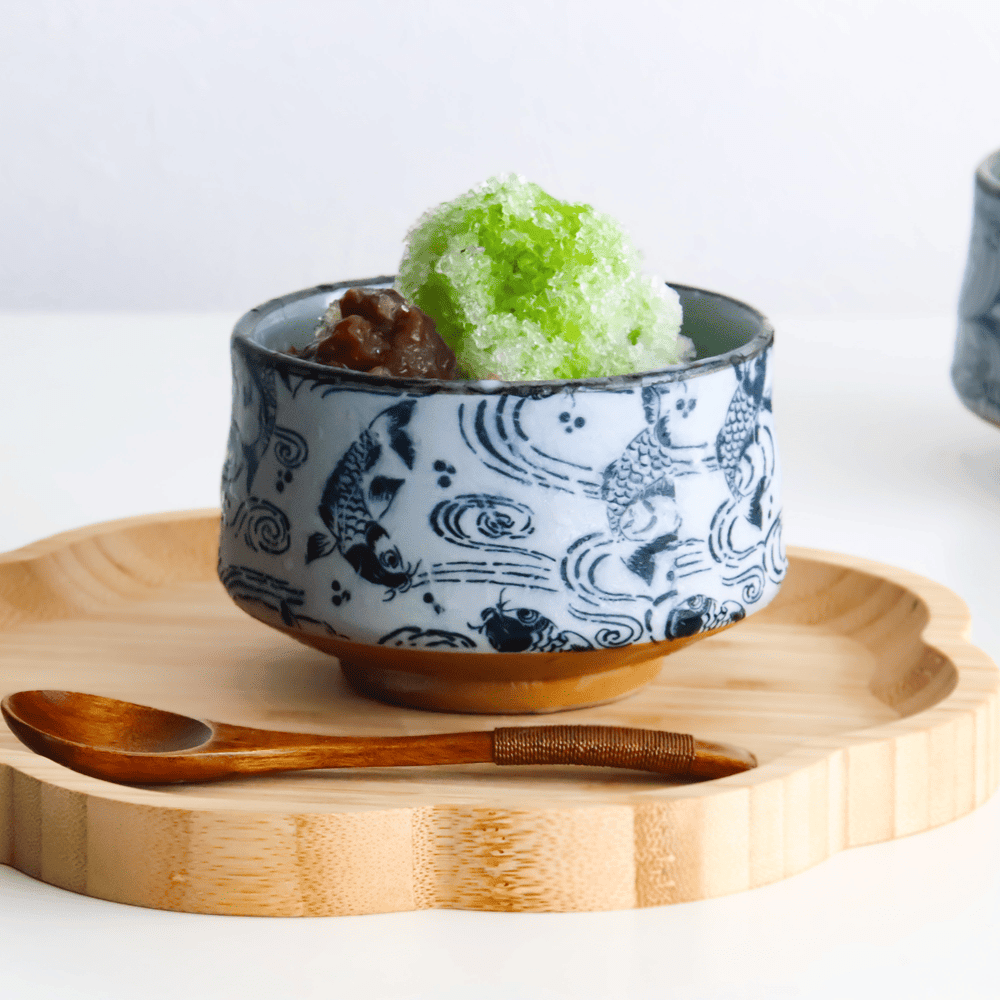
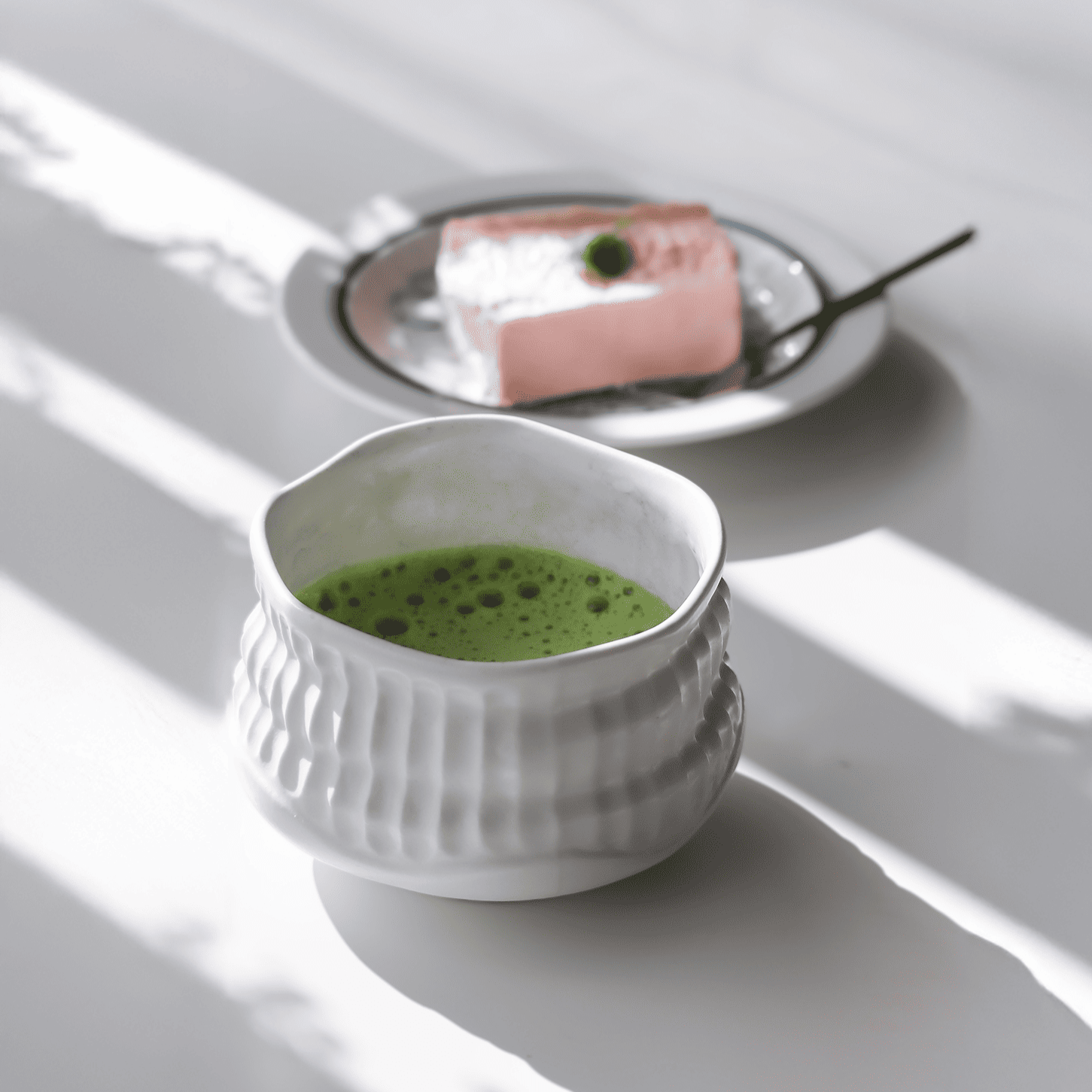
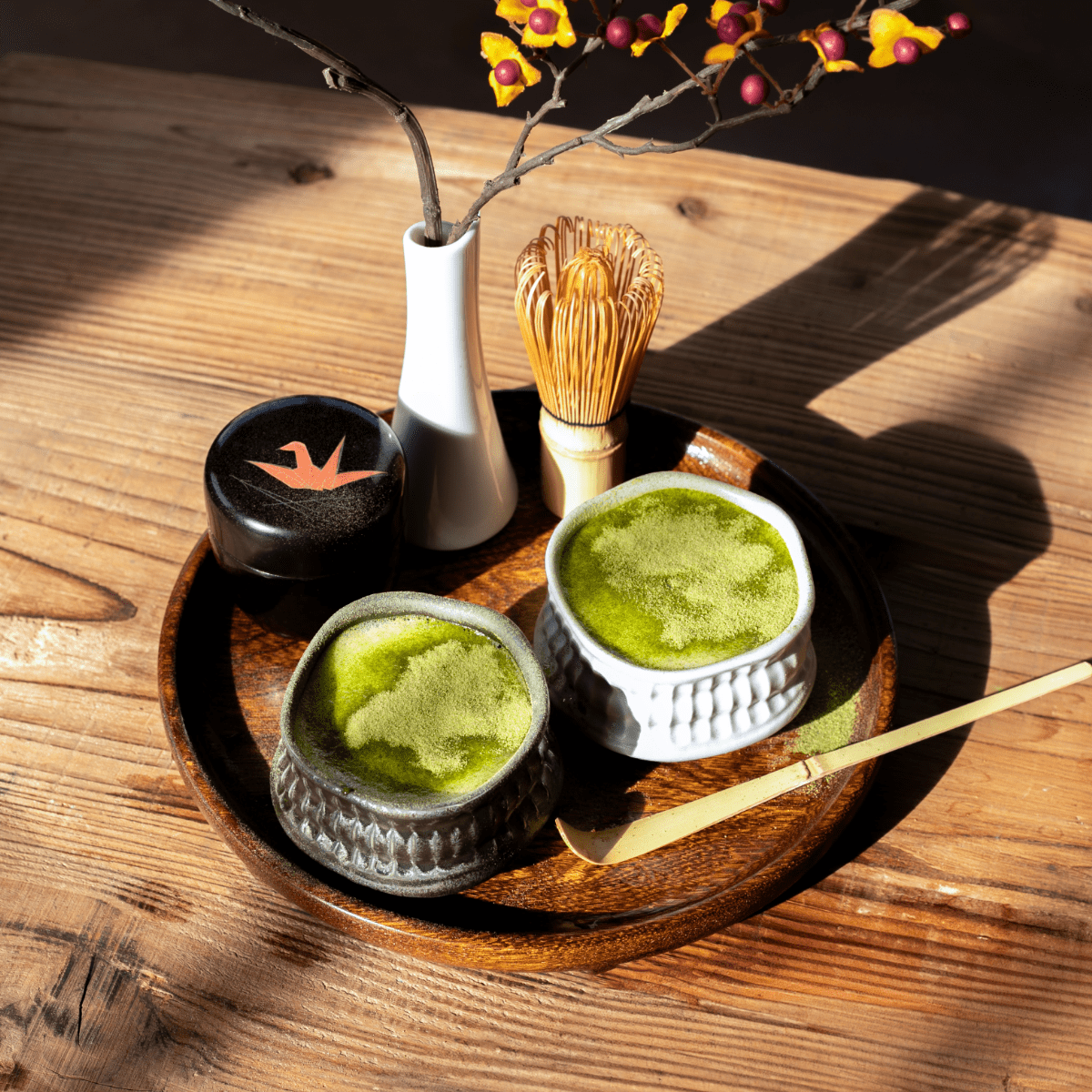
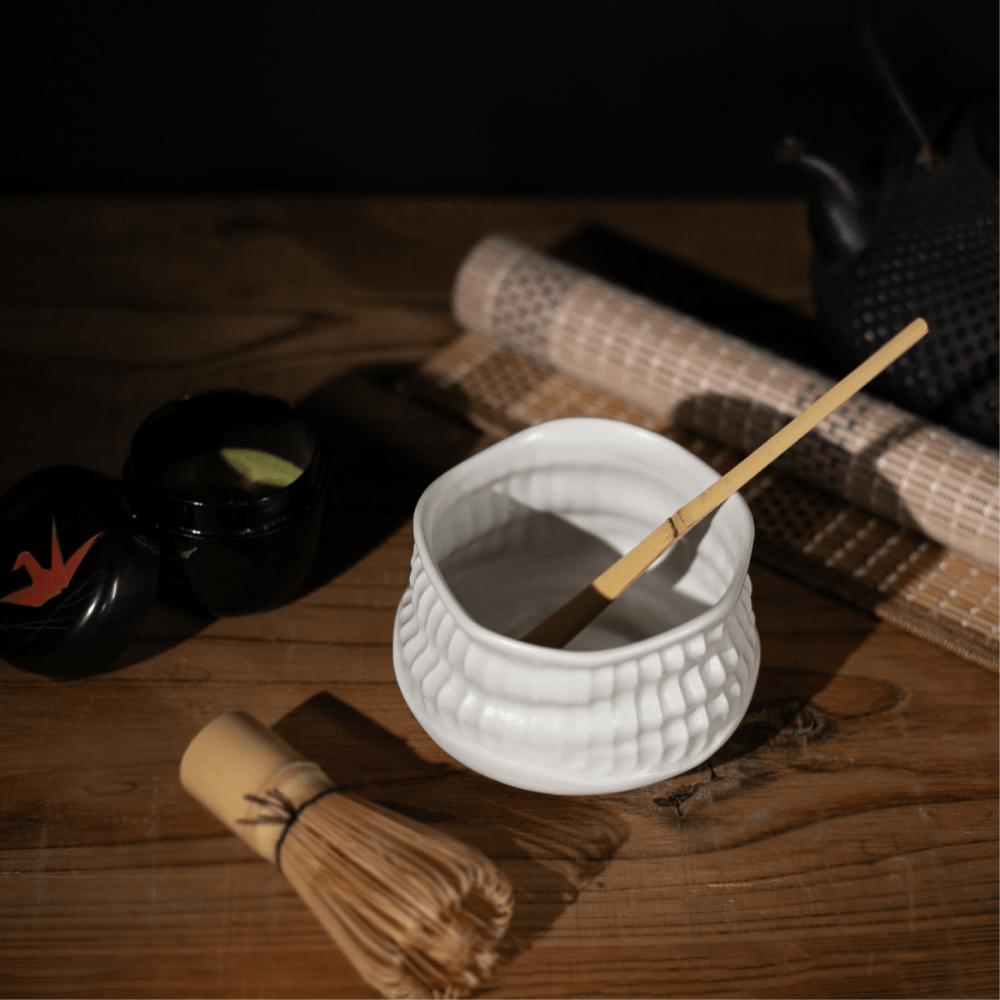
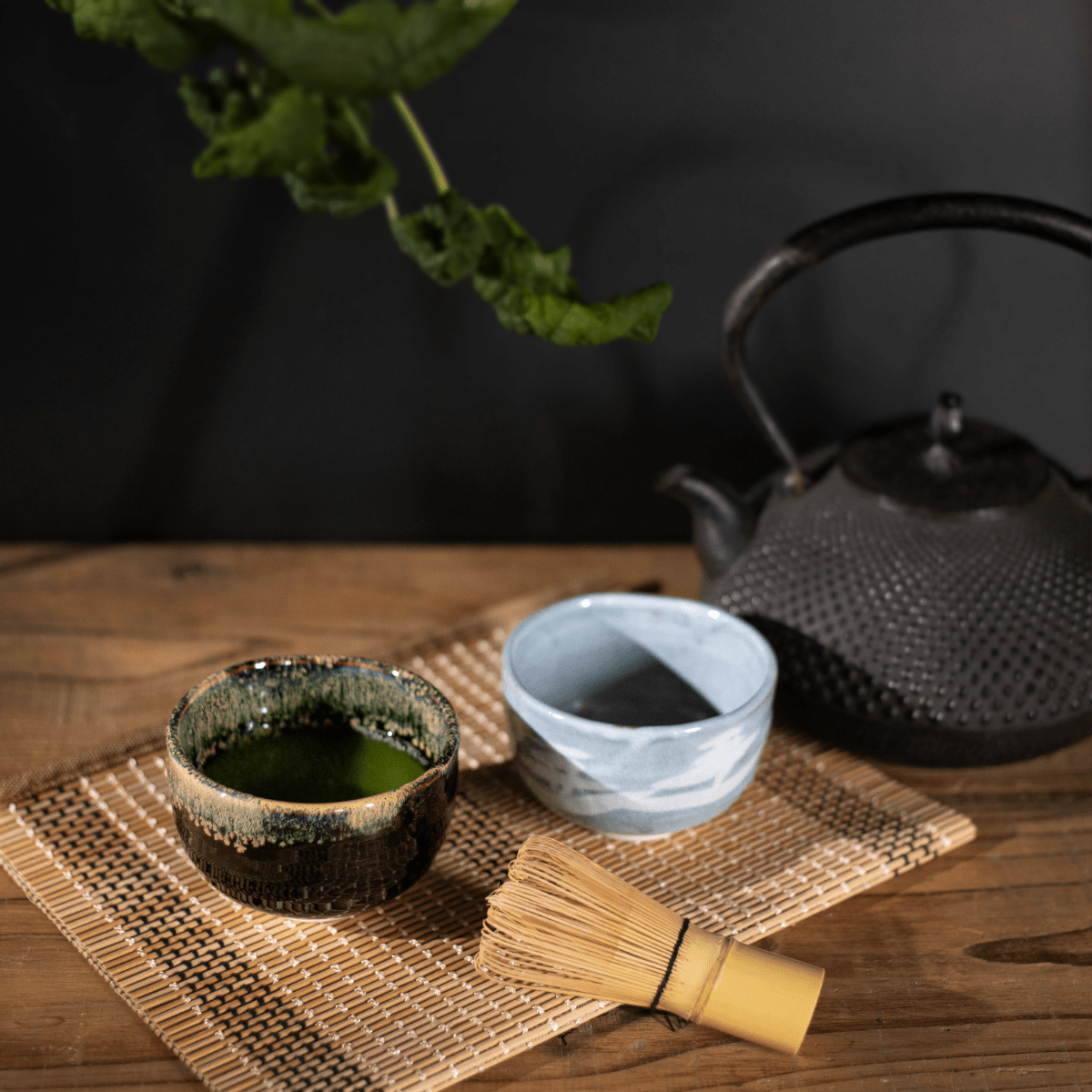
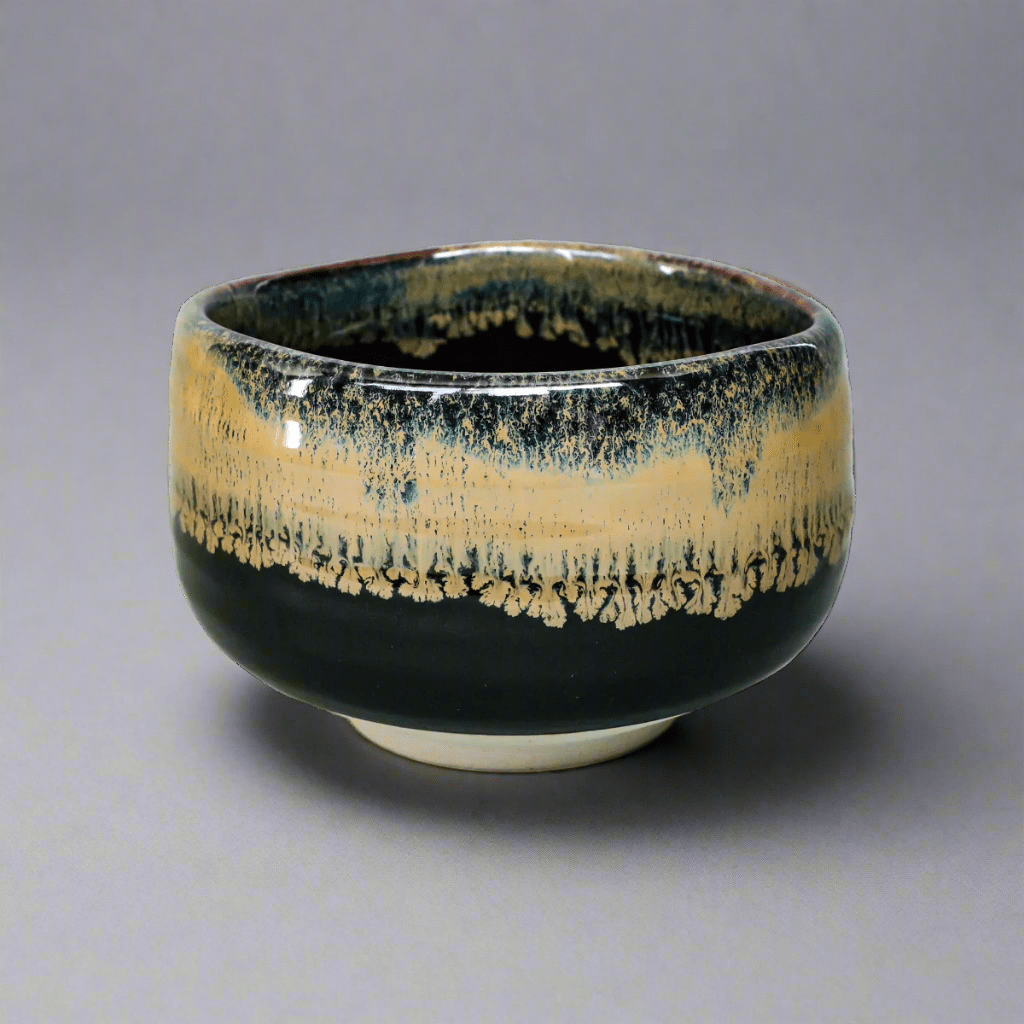
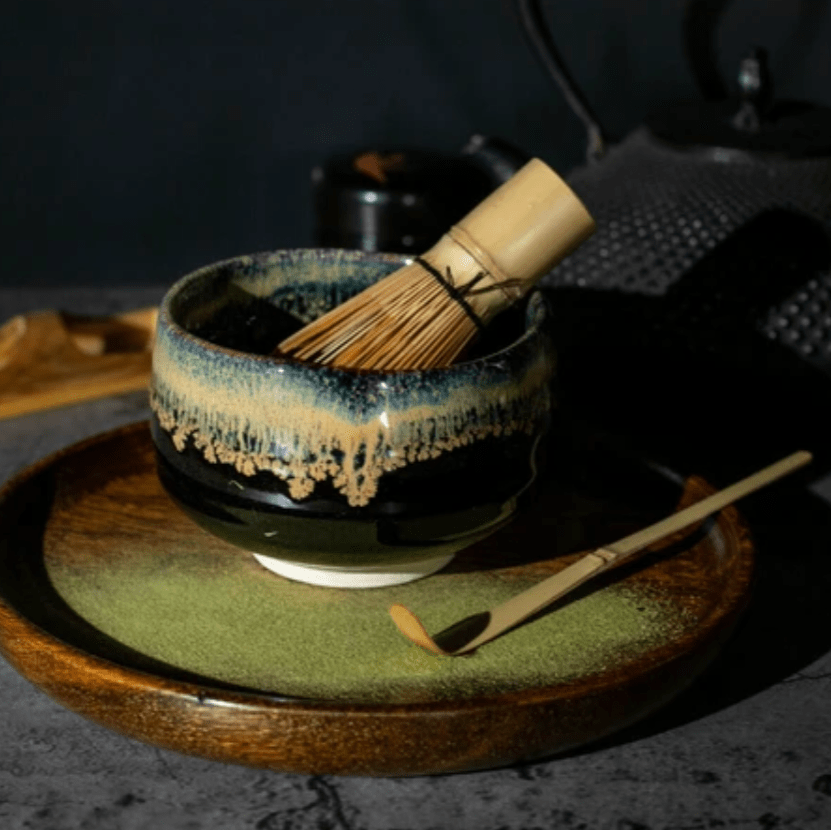
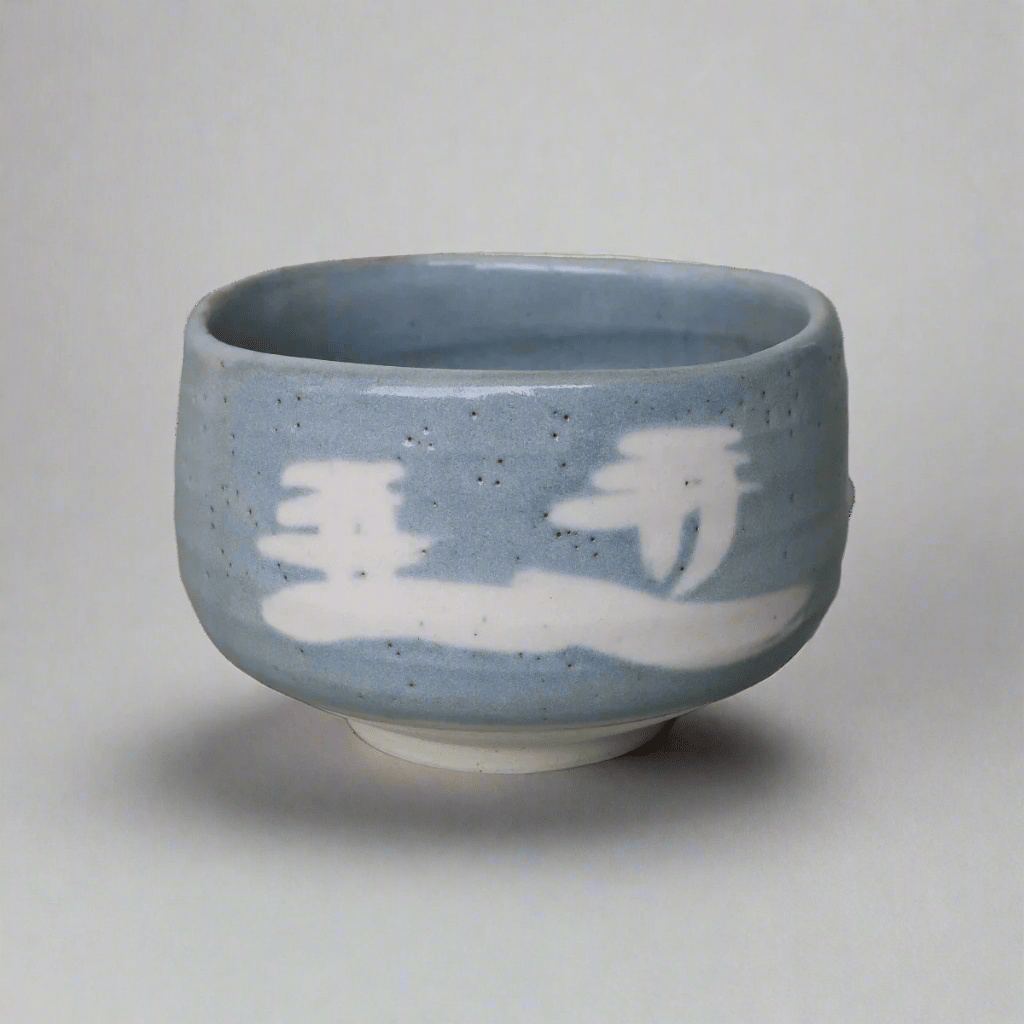
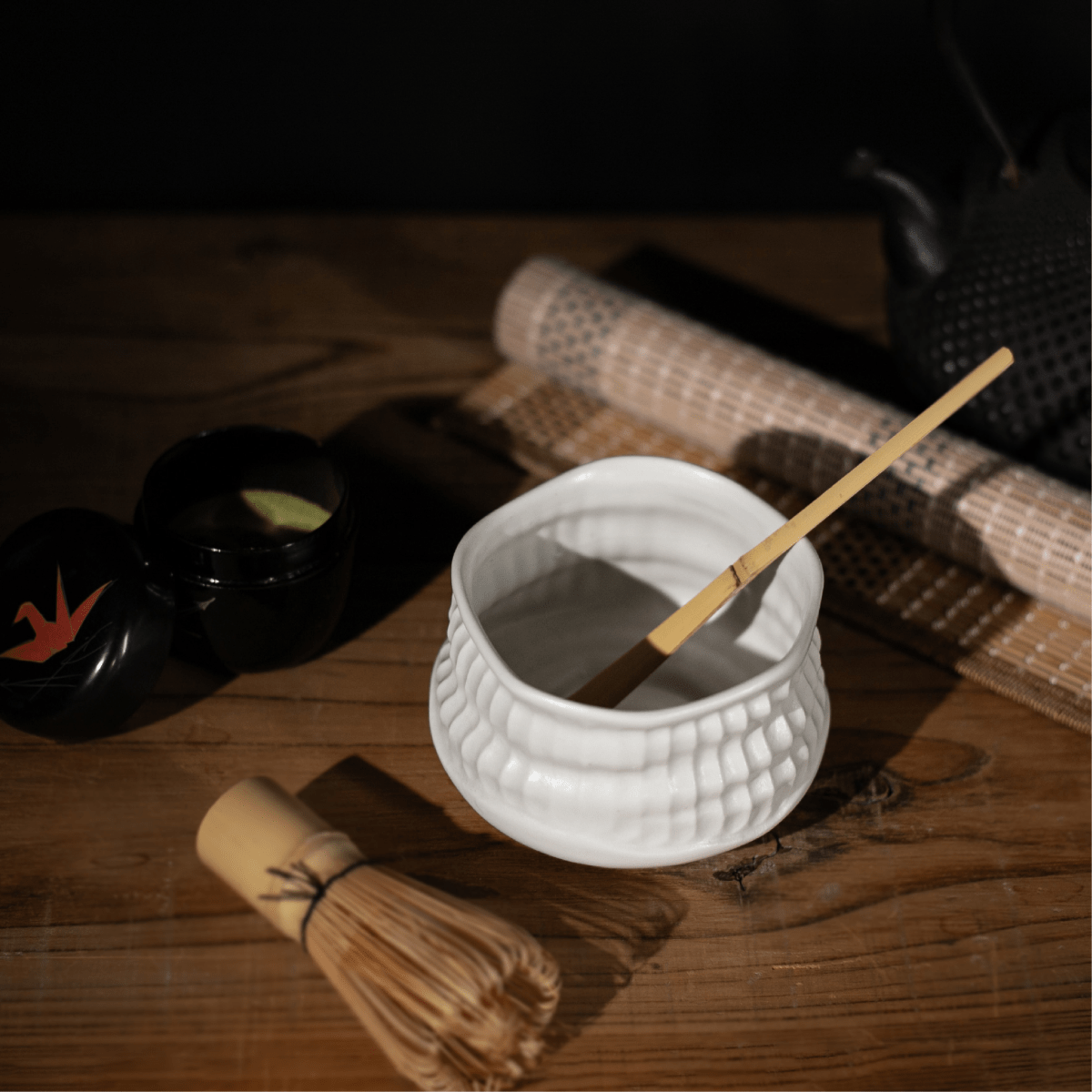
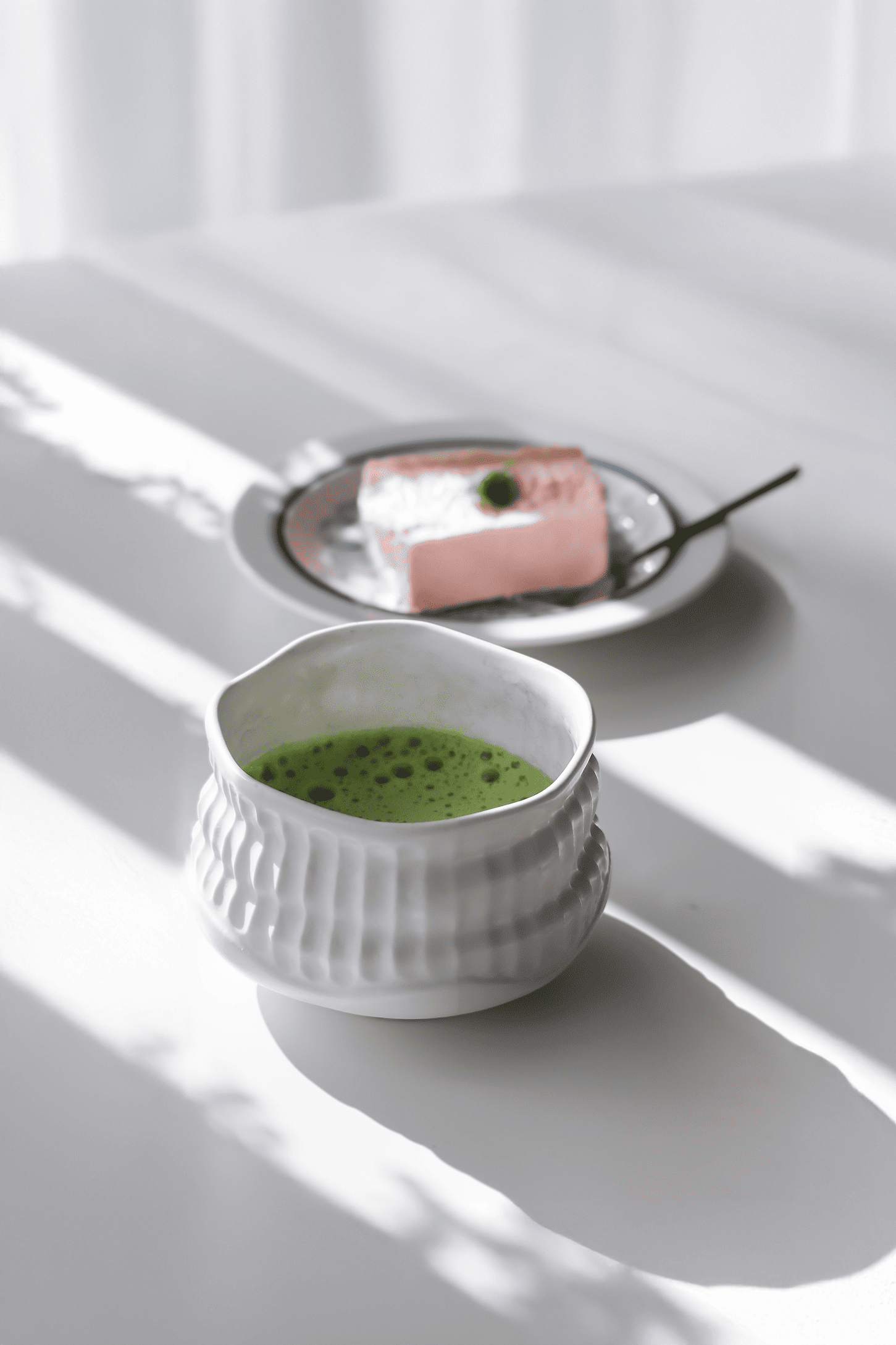
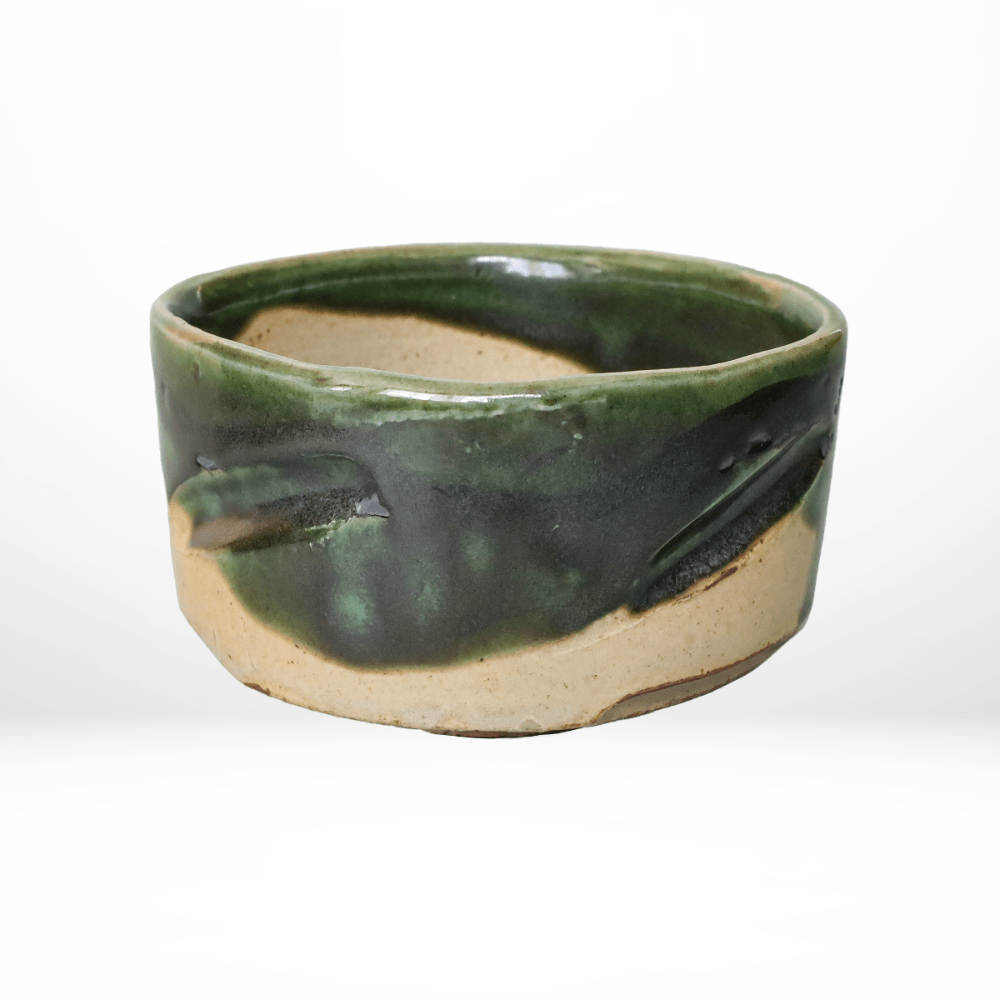
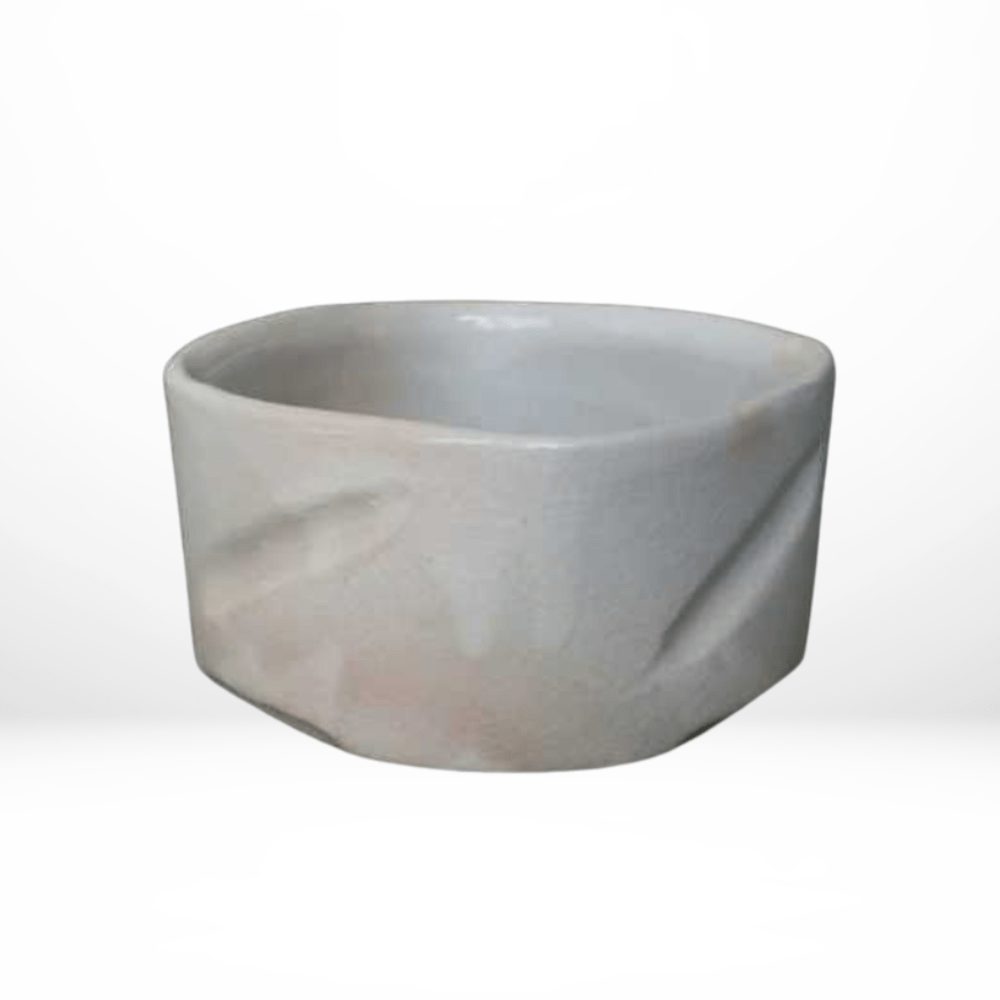
Share: